Foreign tourists visit Bat Trang pottery village (Hanoi). (Photo: Dang Anh)
These two resolutions show a strong change in thinking, creating a legal corridor, mechanisms, and breakthrough policies, unleashing resources and creative potential in society, contributing to promoting breakthrough development in the cultural field.
Build to develop
Resolution 66 marks an important turning point in the work of building and enforcing laws, shifting from traditional management thinking to a modern approach, focusing on people and businesses.
The Resolution emphasizes improving the effectiveness of law enforcement, according to which the law is not simply a "management tool" but must be a "civilized standard", helping to remove bottlenecks, liberate social resources for development, and create competitive advantages.
Resolution 66 requires a resolute abandonment of the mindset of "if you can't manage it, then ban it", promoting democracy, encouraging creativity, and liberating all productive forces for development.
Culture is a special field that requires creativity and constant innovation. Therefore, the new directive content of this Resolution helps quickly remove invisible barriers, liberate resources in society, open up new opportunities for artists, and help them boldly experiment with new things to meet the requirements and trends of the times.
Associate Professor, Dr. Bui Hoai Son, full-time member of the National Assembly 's Committee on Culture and Society, assessed: "Innovation in thinking in legislation is not only necessary, but also the "key" to opening the "door" to development for the country."
At the same time, Resolution 66 clearly states the requirement to "strengthen the application of digital technology and artificial intelligence in legal work", and identifies the goal of law-making work to "create momentum for innovation, digital transformation and digital economic development".
The actors of three blockbuster movies in 2025: "Red Rain", "Tunnel: The Sun in the Dark" and "Air Battle to the Death". (Thai Hoa starred in two movies)
In the cultural field, the application of digital technology will help administrative procedures such as licensing, copyright registration, etc. to be faster and more transparent. On the other hand, the development of cultural industry associated with digital economy, the use of technology to manage and protect intellectual property rights will be a great step forward, creating a civilized environment, promoting Vietnamese culture to integrate internationally.
A notable new point of the Resolution is the focus on building a culture of law compliance, ensuring the supremacy of the Constitution and the law becomes the standard of conduct for all subjects in society.
Accordingly, the culture of law compliance is a system of values, standards and habits of respecting the law. This regulation will contribute to raising legal awareness in the community, thereby forming a healthy cultural environment.
Ms. Le Thuong, President of the Vietnam General Association in Kansai, Japan, shared: “A clear, transparent, stable and investor-friendly legal corridor will open up opportunities for the global Vietnamese community to bring capital, intelligence, technology and experience to serve the country’s development. A favorable legal environment is also an indicator of the country’s level of institutional development, thereby enhancing Vietnam’s position in the international arena.”
Private economy creates a boost for creative culture
Along with the open legal corridor from Resolution 66, Resolution 68 opens up new opportunities and prospects for the private economic sector. The Resolution creates favorable conditions for private enterprises to participate deeply in key areas, including culture.
Specifically, the Resolution sets out many new points: First, shifting from a public administration system, mainly management, to service and development creation, focusing on people and businesses; modernizing public administration, data-based administration. Reducing intervention and eliminating administrative barriers, the "ask-give" mechanism, the "if you can't manage, then ban" mindset; shifting from pre-inspection to post-inspection associated with increased inspection and supervision.
In cultural and artistic events, exhibitions and performances, this regulation will help private enterprises proactively create richer and more unique cultural values to meet social needs.
Second, build breakthrough mechanisms and policies to encourage the private economy to develop in priority areas, including innovation. Facilitate the private economy's access to resources such as land, capital, and high-quality human resources.
Typical examples include preferential tax support policies, such as corporate income tax exemption for the first 3-5 years for small and medium-sized enterprises in the cultural sector; support for renting houses and public land at low and stable prices, helping to reduce operating costs, build community cultural spaces, attract audiences and promote local cultural life...
Third, expand the participation of private enterprises in national projects, and at the same time have solutions to promote private enterprises to invest in expanding and developing the cultural industry and entertainment industry; diversify and improve the effectiveness of cooperation forms between the State and the private economic sector through public-private partnership (PPP) models, public leadership - private administration, public investment - private management, private investment - public use, in the fields of economic infrastructure, cultural and social infrastructure.
The private economy is the force that realizes Vietnam's sustainable growth goals. (Photo: THANH DAT)
Deputy Prime Minister Nguyen Chi Dung commented: Previously, we considered the private economic sector a part of the economy, an important part of the economy. Now, with Resolution 68, we have shifted to considering it the most important driving force of the national economy. We boldly empower them to ensure rights such as: the right to own property, the right to freedom of business, the right to compete equally, access to the country's resources, and to be treated fairly.
National Assembly Delegate Phan Duc Hieu, Standing Member of the National Assembly's Economic Committee, noted: Resolution 68 marked a "substantive change", from the mindset of "only being allowed to do business in industries permitted by the State" to the mindset of "being allowed to do business in all industries not prohibited by law".
This is a major turning point in ensuring the business rights of people and businesses, while creating a strong driving force for the private sector to develop, in which the cultural sector is witnessing the active participation of the private sector, with an increasingly important role.
Resolution 68 marked a "substantive change", from the mindset of "only doing business in industries permitted by the State" to the mindset of "being allowed to do business in all industries not prohibited by law".
National Assembly Delegate Phan Duc Hieu, Standing Member of the National Assembly's Economic Committee
At the same time, Resolution 68 takes a new step forward, which is to ensure diversified business rights, increase the level of protection for the private economic sector, establish specific protection, encouragement and support mechanisms such as allowing businesses to "proactively remedy the consequences first, then consider handling them".
Dr. Mac Quoc Anh, Director of the Institute of Economics and Enterprise Development, Vice President and General Secretary of the Hanoi Association of Small and Medium Enterprises (HanoiSME), commented: “Resolution 68 not only removes institutional “locks” but also places on the shoulders of entrepreneurs a great responsibility in becoming the architects of a new growth model.”
In order for Resolution 66 and Resolution 68 to truly transform into a strong driving force for cultural development, according to experts, relevant agencies need to promptly issue uniform guidance documents for implementation, in order to avoid legal gaps and inconsistent responses between localities and agencies.
In reality, important directions from newly issued Resolutions have quickly come into life, creating a golden opportunity for the private economy in developing cultural industries.
Many creative cultural startups in big cities have had the opportunity to access preferential capital sources and proactively participate in meaningful cultural events such as political art concerts and contemporary art projects, contributing to raising the level of the cultural industry.
The "launching pad" from the newly issued Resolutions will not only help mobilize financial resources but also inspire entrepreneurial spirit, promote the elevation of national culture and position the Vietnamese cultural brand in the international arena.
This is in line with the Party's policy of promoting the role of culture as an endogenous resource and becoming a spearhead economic sector, contributing to the country's development in the new era.
Reporter group (Nhan Dan Newspaper)
Source: https://baocantho.com.vn/bai-3-dot-pha-tu-tu-duy-den-hanh-dong-a191576.html


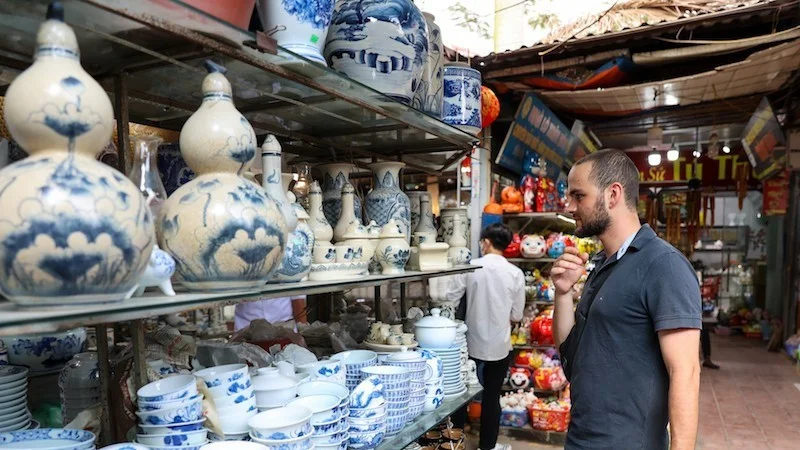
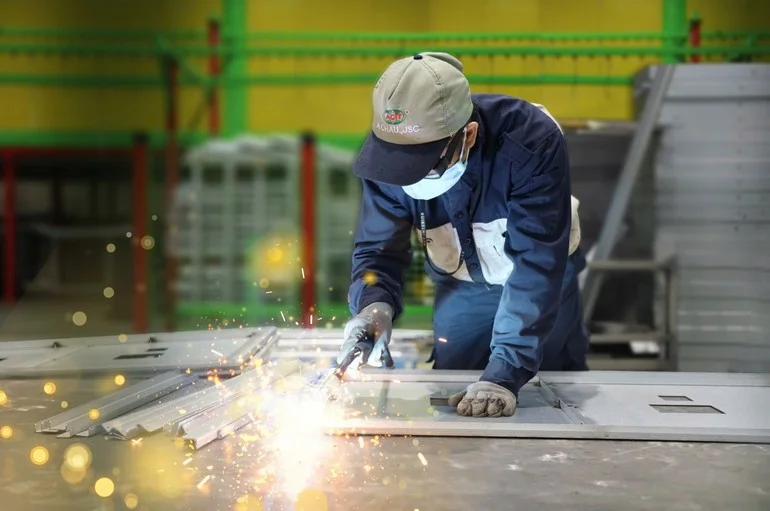


![[Photo] Keep your warehouse safe in all situations](https://vphoto.vietnam.vn/thumb/1200x675/vietnam/resource/IMAGE/2025/10/1/3eb4eceafe68497989865e7faa4e4d0e)
![[Photo] Hanoi morning of October 1: Prolonged flooding, people wade to work](https://vphoto.vietnam.vn/thumb/1200x675/vietnam/resource/IMAGE/2025/10/1/189be28938e3493fa26b2938efa2059e)
![[Photo] President of the Cuban National Assembly visits President Ho Chi Minh's Mausoleum](https://vphoto.vietnam.vn/thumb/1200x675/vietnam/resource/IMAGE/2025/10/1/39f1142310fc4dae9e3de4fcc9ac2ed0)













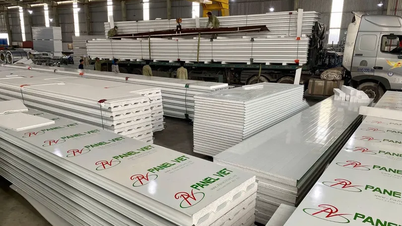




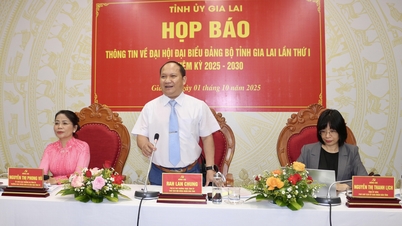








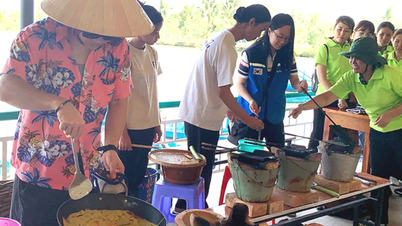
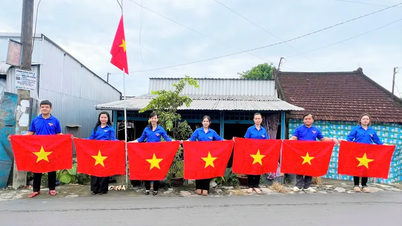






























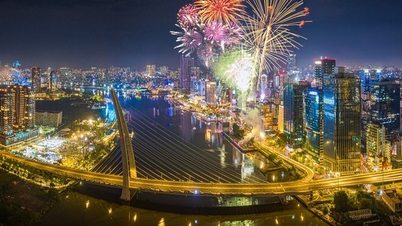










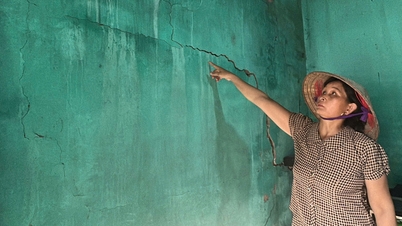

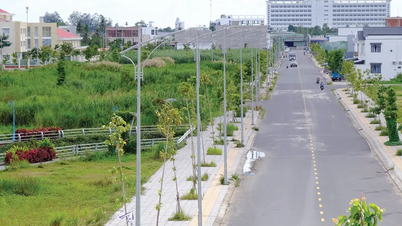
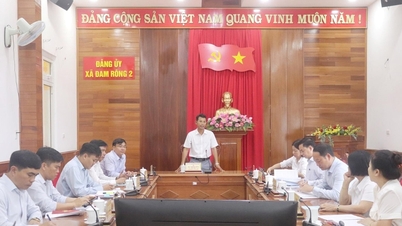















Comment (0)